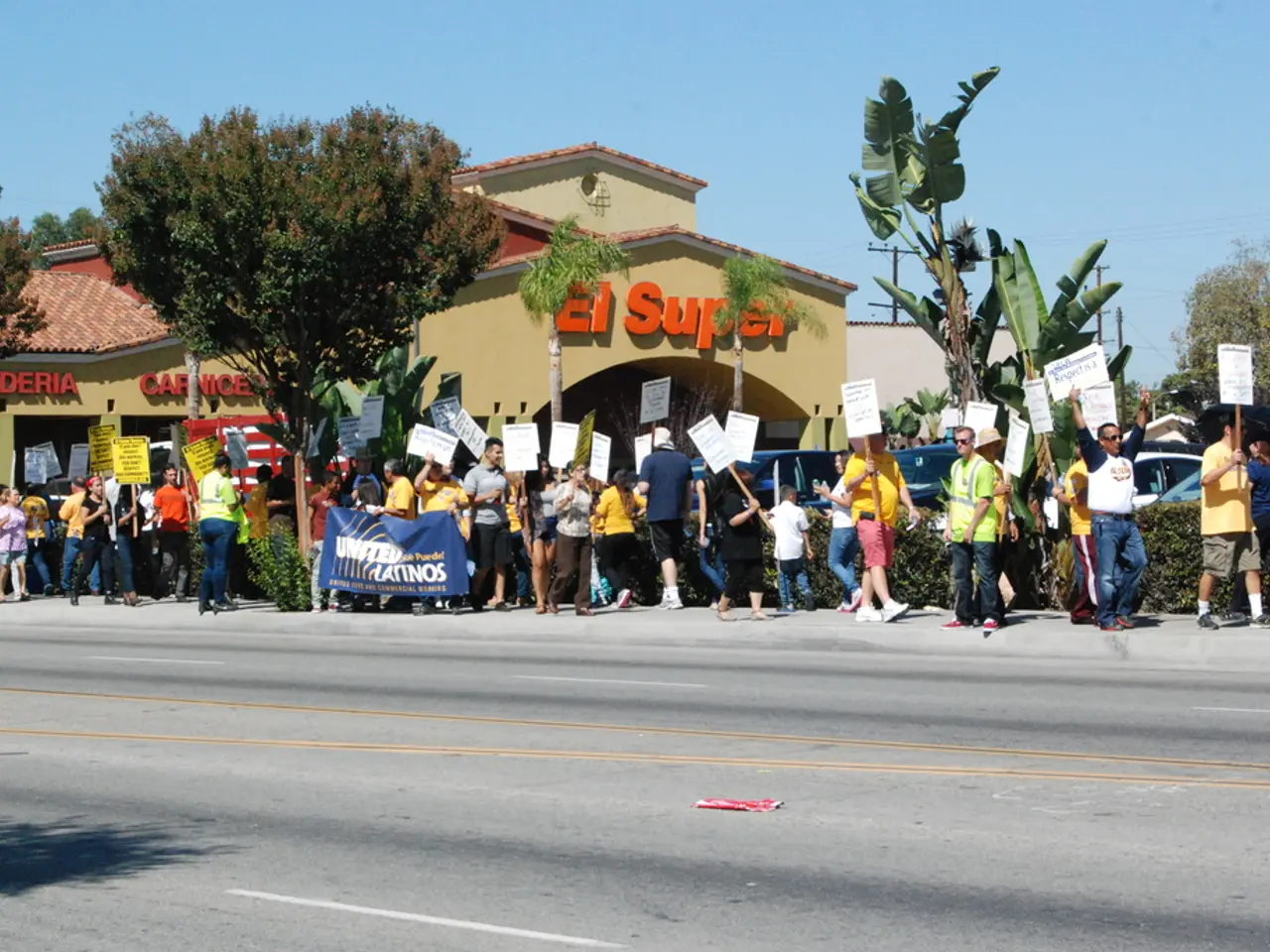- Political parties Union and AfD appear together for the first time in ZDF's latest political poll
In the latest ZDF Politbarometer survey, conducted from Tuesday to Thursday among 1,419 randomly selected eligible voters, the political landscape in Germany shows a significant shift. The Union (CDU/CSU) and the Alternative for Germany (AfD) are tied for the first place, each receiving 26% support.
The Defense Minister, Boris Pistorius (SPD), remains the most popular top politician with an approval rating of 1.8. However, the Federal Chancellor, Friedrich Merz (CDU), has a negative rating of -0.2, and the Foreign Minister, Johann Wadephul (CDU), has a rating of 0.6. The Labor Minister, Barbel Bas (SPD), and the Finance Minister, Lars Klingbeil (SPD), both have a rating of 0.0. The SPD remains in third place with 15% support, followed by the Left Party with 11% and the Greens with 10%. The BSW and FDP would each receive 3% support and not enter the Bundestag.
Sahra Wagenknecht, leader of the BSW, has an approval rating of -1.9, and AfD leader Alice Weidel has the lowest approval rating of -2.4. The least popular top female politician in the current survey is not explicitly named.
When it comes to public opinion on spending, 56% generally favour spending cuts for the federal budget. On the other hand, 40% support increased spending in the social sector, while 34% want to maintain the status quo, and only 23% would accept cuts.
In terms of security, more than half of those surveyed (56%) expect a Russian attack on Poland or the Baltic states. Concerning NATO's response to Russian provocations, 47% believe NATO should respond with more military strength, while 44% reject this idea.
Interestingly, in Eastern Germany, 51% do not expect such an attack. When asked about specific measures, 88% want more money for education, 68% for transport infrastructure, and 58% for the military.
It is worth noting that a parliamentary majority for the current black-red coalition would not exist with this result. Six percent are predicted for other parties. Furthermore, only 21% of respondents expect better politics if AfD, a party partly considered right-wing extremist, were to govern at the federal level.
The statistical margin of error was given as two to three percentage points depending on the percentage value. The political affiliations of the respondents were not specified in the provided information.
Read also:
- United States tariffs pose a threat to India, necessitating the recruitment of adept negotiators or strategists, similar to those who had influenced Trump's decisions.
- Weekly happenings in the German Federal Parliament (Bundestag)
- Southwest region's most popular posts, accompanied by an inquiry:
- Discussion between Putin and Trump in Alaska could potentially overshadow Ukraine's concerns







